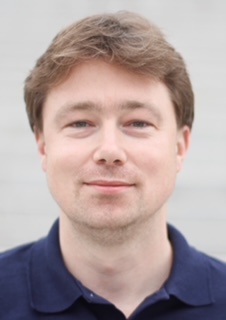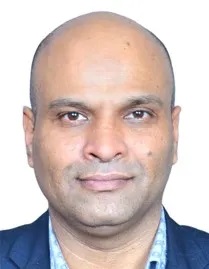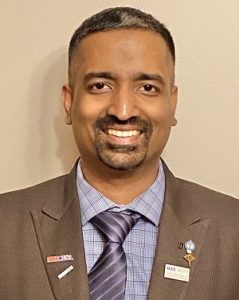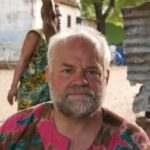Schedule
| Thursday, 24-Oct-24, 2024 0830-1020 |
|
| Thursday, 24-Oct-24, 2024 Lunch |
Engineering with purpose: The New Humanitarian Technologies Approach |
| Friday, 25-Oct-24, 2024 0830-1020 |
Technology Development to Technology Implementation
Thursday, 24-Oct-24, 2024
0830-1020
In this kickoff keynote panel we set the stage for this conference and its theme – DOING. Three panelists, with extensive experience in engineering with communities, will give brief introductory remarks on their background and their view of the distance between technology development and technology implementation in their fields. Then, with the aid of a moderator, we will further explore challenges and opportunities in bridging development and implementation.
Panelists:
- Andrew Lamb, Internet of Production Alliance
- Amit Bhatnagar, founder and CEO of https://accuster.com/
- Ben Savonen, Global Development Incubator
Moderators:
- John Gershenson, Director, Humanitarian Engineering and Social Entrepreneurship program, Penn State
- Toby Cumberbatch, Cooper Union
Panelist Bios:
Andrew Lamb (MEng, MA, MIET, FRSA) graduated in 2005 from the University of Cambridge with a Masters degree in Electronics, Information & Systems Engineering and has worked in international development aid and humanitarian disaster relief for 20 years, with a particular focus in the East Africa, South Asia and the Pacific regions.
Andrew’s key roles include growing the international humanitarian innovation organisation Field Readyas its Global Innovation Lead (2012-2022) where he worked on distributed manufacturing and its role in humanitarian relief, and with Engineers Without Borders UK (2002-2013) in senior positions including as its first Chief Executive (2008-2013) where he worked on decentralised technologies in poverty reduction contexts. Andrew is regarded as one of the world’s leading experts in distributed manufacturing in the Global South, in scaling humanitarian innovations and in global engineering and technology capacity building.
Andrew’s current roles are as the Chair of the Internet of Production Alliance (which is developing open infrastructures for scaling distributed manufacturing, with particular emphasis on the Global South), as co-founder of the Local Procurement Learning Partnership (hosted by the Humanitarian Logistics Association, this partnership helps relief and development agencies to buy locally made products) and as the Director of his company Massive Small Manufacturing Ltd (which focuses on scaling small-scale plastic recycling in the Global South and accelerating the scaling of humanitarian hardware products). He is also on the board of the Appropedia Foundation, Helpful Engineering and FabLab Winam (the makerspace in Kisumu, Kenya). He is on the Supervisory board of the Global Innovation Gathering and the board of Mekanika, an open-hardware machine manufacturer.
Ben Savonen has over 13 years of experience working in global development, technology, and entrepreneurship. Starting his career as a Peace Corps volunteer in Tanzania, Ben has since had the opportunity to collaborate with dozens of NGOs and social enterprises in both the US and East Africa. He has worked as a strategy and technology adviser to the World Bank, UNDP, FEMA, Field Ready, Villgro Africa and Penn State. He is at the Global Development Incubator where he is both a Manager on the strategy and build team and the Director of Innovation at Tabiya. He is most notably the cofounder of the Kenya-based start up Kijenzi, which develops local manufacturing solutions to critical supply gaps experienced in lower- and middle-income communities.
An engineer by training and an entrepreneur by experience, Ben is passionate about finding innovative solutions to real human needs. He holds degrees in mechanical and environmental engineering from Ohio State (BS), Michigan Tech (MS), and Penn State (Ph.D.).
Engineering with purpose: The New Humanitarian Technologies Approach
Thursday, 24-Oct-24, 2024
Lunchtime (2:10-3:20 PM)
Description:
Engineering with Purpose: The New Humanitarian Technologies Approach is a high level session that will explore the role of HTB in creating the infrastructure and mechanisms to apply technology to address global challenges. This panel will bring together leading volunteers from the different IEEE Humanitarian Technology consortium of programs as well as experts to discuss how IEEE programs are working together to harness the power of technology for good.
Additionally, this session highlights outcomes of HTB-supported research on best practices in the humanitarian technologies world, and the user journey study conducted to understand the motivations, barriers, and career impacts experienced by IEEE members and volunteers engaged in HT programs. The new approach that HT is proposing is based on evidence-based research and proposes a more comprehensive support for more sustainable, ethical, and inclusive technological practices that drive socio-economic development and sustainability. Attendees will gain insights into the offerings and future of the Humanitarian Technologies at IEEE and how to engage more actively.
Moderator:
Julianna M. Pichardo, IEEE Humanitarian Activities & Sustainable Development Manager
Panelists:
- Stephanie Gillespie, EPICS in IEEE Committee Chair
- Sampath Veeraraghavan, IEEE Humanitarian Technologies Board (HTB), with focus on Tech4Good
- Toby Cumberbatch, IEEE Smart Village (ISV)
Stephanie Gillespie, EPICS in IEEE Committee Chair, and Associate Dean, Tagliatela College of Engineering, University of New Haven in West Haven, CT, USA
EPICS stands for Engineering Projects in Community Service. The program was founded in 1995 at Purdue University. It was created to meet a two-fold challenge: providing community service organizations with technology they need to improve and deliver services, and providing undergraduate students with educational experiences to broaden their skills.
The program has now spread to universities throughout the United States and abroad, as well several K-12 programs. EPICS in IEEE was founded in 2009 and has facilitated more than 180 projects in over 30 countries and has impacted more than 1,500,000 people through our university initiative and K-12 initiative.
Dr. Stephanie Gillespie is the EPICS in IEEE Committee Chair, and Associate Dean at the Tagliatela College of Engineering at the University of New Haven in West Haven, CT. In this role, she leads initiatives related to accreditation, admissions, course management and scheduling, facilities, student concerns, and also coordinates the Introduction to Engineering course. Since entering academia, she has been passionate about preparing the next generation of engineers with real-life skills, specifically by teaching courses in the area of engineering service learning, first-year engineering courses, and the Grand Challenges of Engineering. Her current research interests span multiple areas of engineering education including maker-spaces, multidisciplinary teams, gender diversity and minority retention, and entrepreneurial mindset. Her PhD from Georgia Tech focused on machine learning and signal processing for affective computing, specifically detecting stress and depression in adults with communication disorders. She is actively involved in the Society of Women Engineers, EPICS in IEEE, and ASEE.
Sampathkumar Veeraraghavan is a globally renowned technologist best known for his technological innovations in addressing global humanitarian and sustainable development challenges. He is a seasoned technology and business leader with over 17 years of experience in the Top 500 Fortune companies. Throughout his career, he has led business-critical strategic R & D programs and successfully delivered cutting-edge technologies in the areas of Conversational Artificial Intelligence (AI), Natural Language Understanding, Cloud computing, Data privacy, Enterprise systems, Infrastructure technologies, Assistive and Sustainable technologies that were targeted to benefit millions of global users. Sampath served as an expert in the 2020 Broadband Commission working group on school connectivity co-chaired by UNESCO, UNICEF, and ITU to drive “GIGA,” a Global School Connectivity Initiative. He is the founder and president of “The Brahmam,” a humanitarian program delivering next-generation social innovations to achieve sustainable development goals and benefit marginalized communities globally. Over a decade, he has launched large-scale transformational global initiatives that brought together academic institutions, industry leaders, and Government agencies to address pressing global challenges faced by children with disabilities, impoverished women, and students from marginalized communities in developing nations.
Prof. Toby Cumberbatch is a professor emeritus of electrical engineering at The Cooper Union in New York City where he taught from 1994 to 2018. His principal research interests are developing engineering practices to address the needs of impoverished, marginalized communities through Engineering for the Middle of Nowhere.
In 2003 he took his first group of students to a village in West Africa where he had lived as a child. From these trips and other classes emerged SociaLite Lighting Systems, a small 501c3 that manufactures and installs lighting systems and micro-grids for communities in regions without infrastructure. Dr. Cumberbatch continues to develop these systems and support SociaLite’s operations in Ghana and beyond.
Women in Humanitarian Technology Panel
Friday, 24-Oct-24, 2024
0830-1020
Panelists:
- Dr. Heather Beem, Professor of Engineering, Ashesi University
- Ms. Amina Abubakar, Founder and Chief Consultant, Adaptive Solutions Africa Ltd
- Ms. Sophia Haoui, Software Developer, New Sun Road
Panelist Bios:
Heather Beem is a Scholar-Practitioner, studying hands-on education in the classroom and scaling best practices in the field. Heather completed her PhD in Mechanical Engineering at the Massachusetts Institute of Technology in 2015. While a graduate student, Heather developed a vision for seeing MIT-style hands-on learning environments manifest around the globe. She became active in the MIT D-Lab, where she co-founded the D-Lab: Education (https://d-lab.mit.edu/courses/education) class, mentoring dozens of students in projects spanning four continents.
In 2016, Heather moved to Ghana, where she founded and leads Practical Education Network (PEN) (https://www.practicaleducationnetwork.com) in the training of thousands of African STEM teachers to deploy experiential pedagogies. In that process, she has developed partnerships with several stakeholders in the education ecosystem, infused low-cost, hands-on STEM content into the national curricula, built a strong local team, and tested models for scaling the impact. Heather has served on the engineering faculty since 2018, helping build Ashesi’s Mechanical Engineering program.
She leads the Ashesi Resourceful Engineering Lab (AREL), which explores the mechanisms and manifestations of indigenous innovation, particularly in fluid mechanics, renewable energy, and experiential education.
Amina Abubakar is an education and development expert with more than 8 years’ experience in providing access to qualitative and inclusive education, and education policy reforms. Through the FlexiSAF Foundation, her work has directly supported more than 5000 children and millions more indirectly through policy advocacy.
She is a Mandela Washington Fellow, a flagship program of the US State Department recognizing Young African Leaders. Amina is also part of the Goalkeepers Network of the Gates Foundation and in 2023 was named among the top 25 young Africans making a sustainable impact in the African education landscape.
As Founder and Chief Consultant at Adaptive Solutions Africa Ltd, Amina is helping local NGOs strengthen their organizational systems and amplify their impact, so reaching more people in need and making the world a better place. Amina’s works have been featured on national and international media including NTA international, the Voice of America and other well-known platforms.
Sophia Haoui is a Software Engineer with extensive experience in developing mobile applications for connected vehicles, including buses and trucks. Sophia has also worked as a consultant on machine learning software for hospitals and as a Software Development Engineer in Test at Autodesk. Sophia’s background includes a Bachelor’s degree in Computer Science from the University of Michigan. New Sun Road is a public benefit corporation developing data-driven IoT technology solutions.













